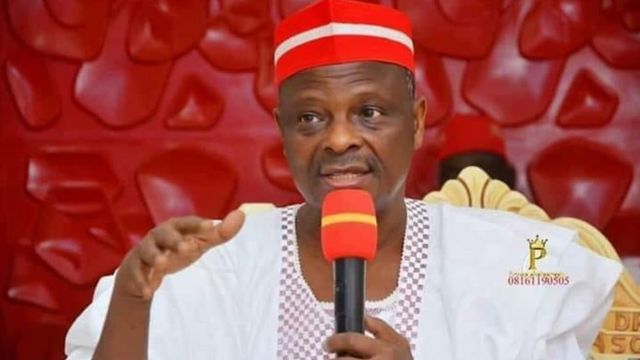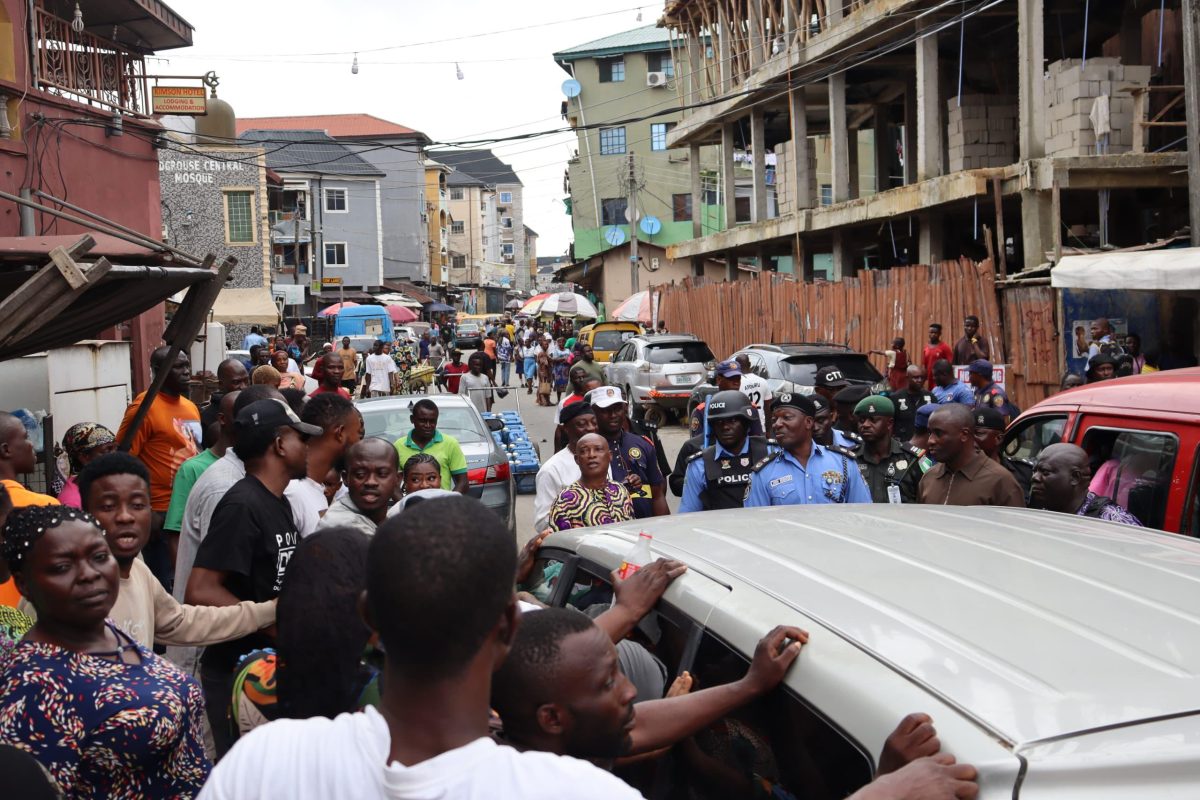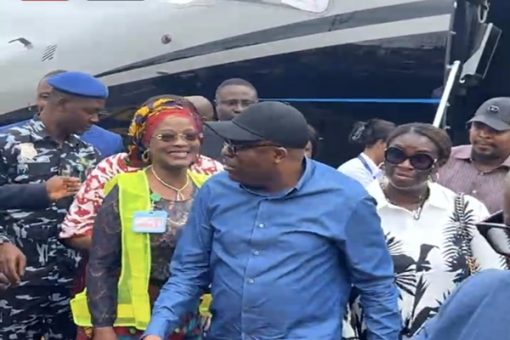Have you seen the videos on this link: https://www.firstbanknigeria.com/home/impact/crs-week/? Piece of advice: Please hold your handkerchief or make sure there is a good supply of tissue paper while you view.
The initiative that inspired the efforts and results seen in the videos is not a strange one but it has a way of surprisingly leaving people teary-eyed. Viewers tear up as they get to see the positive difference it has made in the lives of ordinary people in communities across Nigeria.
Many people across the country are familiar with SPARK – Start Performing Acts of Random Kindness – an initiative by First Bank of Nigeria Limited, West Africa’s premier banking institution with its impact woven into the fabric of society. SPARK was initiated to spread the message of kindness and inspire people to adopt kindness as a way of life. What many may not know is how much of a kindness revolution the initiative has birthed within FirstBank itself.
What started out in 2017 as a simple effort to reignite acts of kindness in society through events that could help to reorient people towards the right values, has turned FirstBank itself into a massive kindness enterprise. The management and staff have become part of giant machinery that constantly generates kindness. The staff of FirstBank is involved in several initiatives informed by their kind heart and disposition. A number of staff run private charities on the side, that help the underprivileged. A number are deeply involved in private charities run by other people. And every staff, by department or directorate, is involved in collective endeavors to make a positive difference with their touch of kindness in poor and challenged communities around them.
Tagged “SPARK Amplification”, the collective endeavors involve each department or directorate within the bank and its staff using an assigned month in the year to collectively identify and fund an impactful project in a challenged community. Executed as an internal initiative under the banner of SPARK, itself a part of the bank’s impactful Employee Volunteering and Giving program, SPARK Amplification seeks to expand and deepen FirstBank’s involvement in its stakeholders’ communities through integration and institutionalization of acts of random kindness.
In 2021, at least seven groups, comprising departments and directorates, took turns (in their assigned months) to fund and execute projects of their choice. The bank did not determine or contribute to support any of the projects. Each project was fully funded by the staff of the executing group, and each involved engagement through departmental champions. The projects ranged from visits and donations to the underprivileged, to business support, educational support, and construction. In terms of impact or the difference made by the departmental projects, the reactions of the direct beneficiaries speak volumes.
They are only children. So, one must forgive the occupants of Treasure Care Home, Port-Harcourt Children Home, and Atunda-Olu School for Physically Challenged in Abuja, Port Harcourt, and Lagos respectively, if their best attempt at defining the word “corporate” is no more than a mere description of the men and women of the Corporate Banking Group of FirstBank. Even adults may struggle to do any better when totally overwhelmed by the visits and donations of teams of august visitors from the directorate who came calling in August 2021.
The staff of FirstBank’s Corporate Banking directorate, rather than allowing for unnecessary individualistic efforts and brilliance, aggregated all efforts and thus demonstrated that they understood the multiplied power and impact of corporate efforts. The result was the overflow of food items and other provisions delivered in Abuja and Port Harcourt, and in Lagos, water closets, empowerment training tools, food items, and toiletries were donated to the physically challenged children.
Even the 356 children in 16 orphanages and a hospice located in 11 cities across the country visited by the E-Business and Retail Products directorate could make a similar mistake if asked to define the concept of e-business. So, there should be a readiness to extend the same forgiveness to them. They were completely overwhelmed by the donation of back-to-school supplies and food items by the directorate. To create a deeper connection, men of the directorate cooked for the children in October 2021.
Demonstrating their full awareness of risks, especially security risks, the staff of the Risk Management directorate elected to construct a perimeter fence and security gate at St. Peters African Church Schools (I and II) in Oke-Aro, Ifo, Ogun State. November 2021 was the month that witnessed this intervention to mitigate serious security risks.
December 2021 was the month of the learned minds manning the bank’s Legal Services department. And as expected, they did not disappoint. Knowing the power of education to elevate the mind, to inform and correct, our learned friends channeled their efforts towards visiting the Ikoyi Custodial Centre of the Nigerian Correctional Service, in Lagos, to donate educational materials, tables, chairs, and fans to support the education of the inmates.
Earlier in 2021, May precisely, staff of the Marketing and Corporate Communications department had donated SPARK-branded umbrellas, tables, chairs, and cash in support of small businesses. These small businesses were being run by petty traders around FirstBank head office (Samuel Asabia House) and an annex (Elephant House) in Lagos Island.
The staff of the Compliance department of the bank had chosen educational support as their project. The beneficiaries were students of Gbara Community Secondary School, Jakande, Lagos State. The students received mathematics and English language textbooks – the two compulsory subjects. This intervention was in June 2021. And in September 2021, staff of the Human Capital and Management Development department (HCMD) stormed the Makoko community in Lagos. Widows and aged women were the targets. They received a large donation of food items and toiletries from the HCMD team.
The multi-million-naira projects by members of staff of the seven executing directorates and departments saw the staff committing about 10,000 volunteering hours, which value cannot be quantified in monetary terms. The projects directly impacted about 4,500 people across Nigeria’s 6 geopolitical regions. Many more thousands were indirectly impacted by the projects.
While the bank maintains its stance of not contributing to support any of the departmental efforts, it understands the need to spur staff to continue to champion and pursue worthy causes. So, the CEO’s Office matches the value from the directorate with the highest contributions. The November 2021 efforts of the staff of the Risk Management directorate put them in pole position to receive the matching grant, which the directorate will expend in the execution of another project in this new year.
Demonstrating a true heart of service to humanity, the executive leadership of all the implementing directorates joined their team members to volunteer in the schools and homes visited.
And as the euphoria of the new year wanes and people begin serious efforts to make a success of 2022, the staff of FirstBank is already raring to go. They kick off new rounds of implementing, by department, self-determined and -funded initiatives in underprivileged communities around them.
The Finance directorate will seek to set the tone for other directorates or departments as its staff embarks on their own project this February. The technology and Services department will follow in March and give way to Corporate Transformation in April. May will see Customer Experience and Value Management (CEVM) in action.
The staff of Retail and Commercial Banking (Lagos and West) will take their turn in June ahead of Retail and Commercial Banking (North) in July. Then in August, the Corporate Responsibility and Sustainability (CR&S) Week will hold. This is a full week of community-impacting activities funded by the Bank.
Departmental interventions will resume in September with Retail and Commercial Banking (South), followed closely by Internal Audit in October. The staff of Public Sector Group will take over in November while the staff of the Treasury and Financial Institutions will seek to close the year on a high when they execute their project in December.
The line-up of FirstBank directorates/departments set to take turns in 2022 to execute their own initiated and funded projects looks really promising. Benefitting communities in 2022 are likely to see more robust engagement by FirstBank departmental staff and more impactful projects. For anyone wondering what this could mean, they should endeavor to multiply by any figure above 1 (one) the visible impact of the projects they see in the videos on this link https://www.firstbanknigeria.com/home/impact/crs-week/. They will not see any project in 2022 when the kindness revolution is set to go notches higher, which is less impactful than its 2021 version.

 BIG STORY2 days ago
BIG STORY2 days ago
 BIG STORY2 days ago
BIG STORY2 days ago
 BIG STORY4 days ago
BIG STORY4 days ago
 BIG STORY1 day ago
BIG STORY1 day ago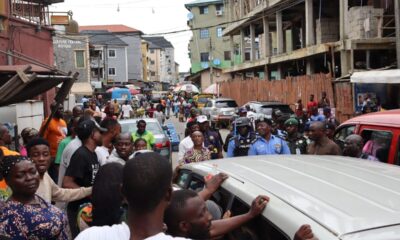
 BIG STORY2 days ago
BIG STORY2 days ago
 BIG STORY4 days ago
BIG STORY4 days ago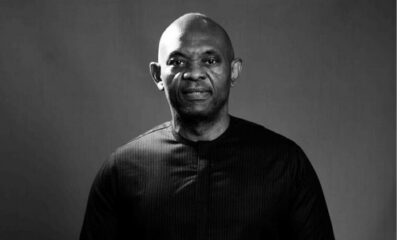
 BIG STORY4 days ago
BIG STORY4 days ago
 BIG STORY5 days ago
BIG STORY5 days ago



















